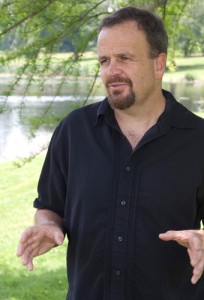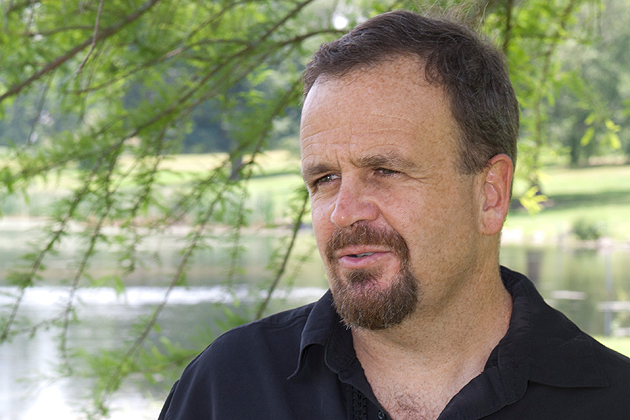
Bradley Wright is an associate professor of sociology who studies the sociology of religion, focusing on American Christianity. His book, Christians are Hate-Filled Hypocrites … and Other Lies You’ve Been Told was published last year, and he has just published Upside: Surprising Good News about the State of our World (Bethany House 2011)
Do we, as humans, need religion to make us feel secure and part of a community?
Religion is not necessary to feel secure and part of a community, but many, many people—probably a majority of the world’s population—find it very helpful in accomplishing both.
Do you think that people today are getting more involved or less involved with organized religion? Are certain types of religion or certain sects growing?
The 1990s witnessed a dramatic jump in the percentage of Americans who do not affiliate with religion. Previously, only about 7 percent did not affiliate, but now it’s about 17 percent. It’s leveled out somewhat in recent years, and those remaining in religion, which usually means Christianity, exhibit somewhat higher levels of involvement.
The media have been saying for a while that Mitt Romney is not electable because he is a Mormon. Yet millions in the U.S. and world-wide are Mormons. Do you think that Americans are intolerant of religions they don’t know much about?
Americans are more tolerant of some religions and less tolerant of others. We’re very tolerant of Judaism and Christianity, but we’re much less tolerant of Islam, though we’re relatively familiar with it as well. Some of the more esoteric American religions, such as Mormonism and Scientology, provoke intolerance.
It seems like more and more Americans are joining conservative Christian, “born-again” religions. Is there a pattern to this growth? Is it part of a trend that may change?
Evangelical, born-again, or other types of theologically conservative Christians have constituted about a quarter of the nation’s population for the last several decades. This stability is impressive, given the rapid increase of the religiously unaffiliated. Catholics, likewise, have remained stable, also at about a quarter of the population. The large influx of Hispanic Catholics has counteracted the loss of native-born Catholics. Mainline Protestants, however, have steadily lost market share in American religion over the last century. At one point, they claimed more than half of Americans, but now it’s only about 15 percent.
Research shows that conservative Christians are more likely to get divorced than other people. This isn’t true for conservative Jews, for example. Why is it happening?
Actually, the religiously unaffiliated and members of historically black churches have the highest divorce rates. Catholics and mainline Protestants have the lowest. Evangelicals and other theologically conservative Christians are a bit above average. It’s not clear how to interpret the correlation between religion and divorce. It could be that certain types of people, who are more or less prone to divorce, join certain religions. Or it could be that the teachings and practices of a given religion are more or less effective in encouraging marital stability. Or it could be some of both.
Wright was interviewed earlier this year by USA Today about Christian divorce rates.



